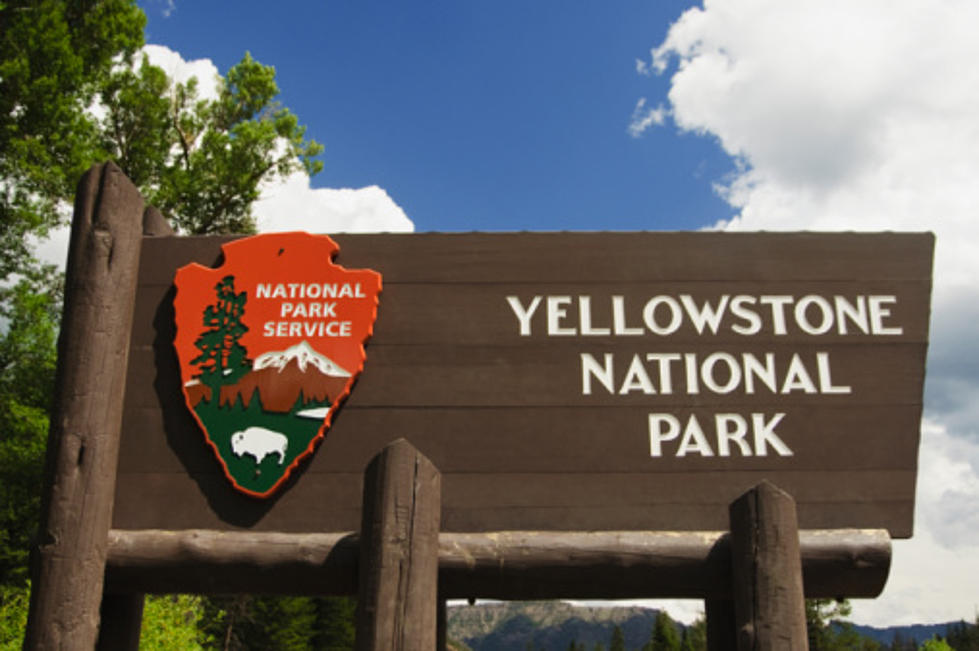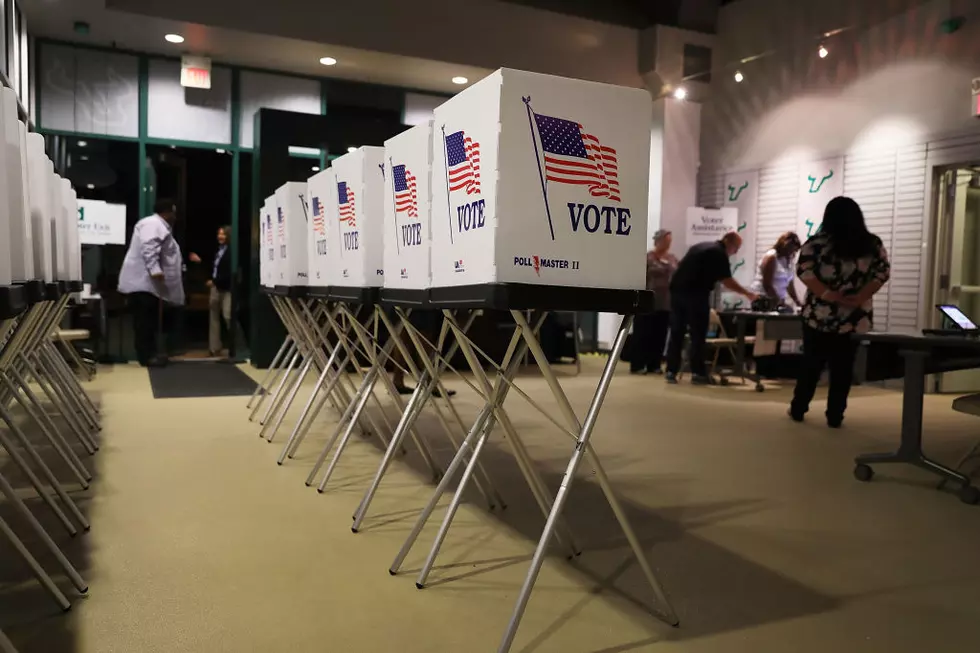
2020 Democrats Aim to Reverse Trump gains in Rural Areas
By ALEXANDRA JAFFE and ELANA SCHOR Associated Press
DES MOINES, Iowa (AP) — They're flanked by hay bales on otherwise deserted fields, speak atop countertops at small-town coffee shops and tour farms far removed from city centers. Democratic presidential candidates are trying to prove they can gain ground in rural areas that swung to President Donald Trump.
On Wednesday alone, three White House hopefuls — Elizabeth Warren, Kirsten Gillibrand and Amy Klobuchar — offered sweeping proposals that touch on everything from farm subsidies to rural broadband and health care. The trio of senators are among the parade of candidates who will fan out across Iowa this weekend to participate in the famed state fair and other events.
The focus on rural Iowa is a mainstay of presidential politics, sending candidates on a sometimes-awkward pilgrimage to the far corners of the state that holds the first-in-the-nation caucuses. But Democrats say the chase for the heartland is especially urgent this year as the party tries to win back some voters who backed Trump in 2016. A strong showing in Iowa, they say, could prove a candidate's ability to make inroads in other rural communities across the country.
"If we don't fight everywhere, we're going to continue to lose in the places where we don't show up, and it's going to get worse and worse," said J.D. Scholten, the Democrat who is challenging GOP Rep. Steve King again after nearly prevailing in the heavily rural northeastern Iowa district in 2018.
The challenge for Democrats is to rebuild the multiracial coalition across urban and rural areas that twice sent Barack Obama to the White House. His victory in the 2008 Iowa caucuses helped build momentum to claim the party's presidential nomination. He later carried Iowa in the 2008 and 2012 general elections while also winning states with urban centers, such as Pennsylvania and Michigan.
By 2016, Trump ate into that path , carrying Iowa, Pennsylvania, Michigan and Wisconsin.
As they work to reverse those gains, some Democratic candidates are offering ambitious changes to rural voters. Warren's proposal on Wednesday would reshape the current farm subsidy system into a program that would break up big agribusinesses and guarantee farmers certain prices, which she said would raise farmers' incomes and save taxpayer money.
Warren's said her proposal, similar to programs the government used during the New Deal era, "gives us the tools to stabilize farm income where farmers aren't getting prices at the cost of production, like commodity crops and dairy." She added in an online post about her plan that her approach also would improve "food security by giving the government access to reserves if needed" and would cut down on overproduction.
Klobuchar is proposing an expansion of federal programs that help small family farmers and small business owners in rural areas, and those that incentivize farmers to engage in conservation practices. It encompasses some planks she's already released in the past, like her plan to invest in rural broadband, and some she's worked on during farm bill negotiations on Capitol Hill, like investing in clean energy and energy efficiency programs.
She also pledges to expand Medicare reimbursements for rural hospitals and increase access to childcare in less-populated areas.
"You need someone that understands ag, that also gets that that's not the only thing in rural America, that there are a lot of other issues we have to tackle if we're to move forward," she said as she introduced her plan on Wednesday in Iowa as she highlighted her experience as a senator from Minnesota.
Sen. Bernie Sanders, former Rep. John Delaney, former Colorado Gov. John Hickenlooper and former Vice President Joe Biden have all released comprehensive plans for revitalizing rural America, which include planks focused on health care, agriculture reform, and investments in local economies and infrastructure. Other candidates have sought to tackle a single issue, like the rural health care policies released by Sen. Michael Bennet. Warren's new farm agenda includes a section on health care, including new support for rural hospitals.
There's considerable overlap within the field on the broad foundations for helping less-populous areas of the country. Nearly every candidate with a plan has endorsed stepping up antitrust enforcement against major agriculture monopolies, incentivizing farmers to engage in more environmentally friendly practices, renegotiating trade deals to be more favorable for farmers and investments in rural broadband.
But their pitches go beyond just policy. A number of Democrats in the field, like Hickenlooper, Klobuchar and Steve Bullock, tout their experience campaigning and crafting policy for rural areas.
"I refuse to cede the votes of rural Americans to Donald Trump," said Bullock, the Montana governor who has made his success in a Trump-won state a centerpiece of his struggling presidential campaign.
Gillibrand, who was first elected to a conservative upstate New York congressional district, often highlights her rural roots. Warren frequently recalls her family's struggle to get by financially during her childhood in the deep-red state of Oklahoma.
Some of the candidates have also made an effort to campaign beyond Iowa's population centers, in places like tiny Malcom, a town of about 285 people where Sanders held a town hall, and Stanton, a town of fewer than 700 where Klobuchar spoke about her rural broadband plan.
Warren's campaign has deployed a rural-focused organizer, who spends his days driving a pickup truck to the state's smallest towns and holding town halls and coffees with locals, conversations that ultimately helped inform the candidate's policy. Her pair of rural policy platforms included praise from advocates and experts in farm states, such as the president of the Texas and Nebraska Farmers Unions.
But some of Iowa's most prominent rural activists warn that the candidates may be missing the mark.
Scholten said candidates are going too deep in the weeds on policy details without laying out a broader guiding "vision."
"The way to win in rural areas is to show them a vision on how (the candidates) can improve on people's lives," he said.
Pointing to Sanders' plan, a sweeping multi-part proposal, Scholten added, "when you have a 17-point plan, that's good, but that doesn't really resonate with someone in Hinton, Iowa. That was a huge dump of policies," he said. "I know that policy and what it will do, but the average voter won't."
Former state Sen. Tom Courtney, now a local Democratic Party chair in a rural southeastern county, said the candidates need to "go to these audiences, but start talking more jobs, more health care, not just in platitudes."
"Nobody's doing that," he said.
__
Schor reported from Washington.
More From KMMS-KPRK 1450 AM



![[POLL] Will Trump Be The First President to be Impeached twice?](http://townsquare.media/site/8/files/2019/03/GettyImages-1133674144-e1555602477989.jpg?w=980&q=75)



![[POLL] Who Won Last Night’s Democrat Debate?](http://townsquare.media/site/8/files/2019/10/GettyImages-1158534211.jpg?w=980&q=75)
![Rep Greg Gianforte on USMCA, Impeachment and ICE [Listen]](http://townsquare.media/site/8/files/2019/06/gianforte.jpg?w=980&q=75)
